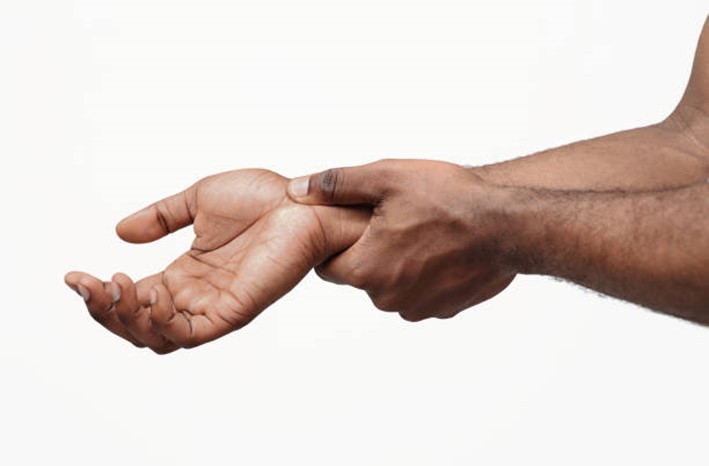
WRIST PAIN
- 2024-07-26 01:09:13

So yesterday morning Ruth called me to book for an appointment and we were lucky to have one for her before long. Two hours later she walked in with blood shot eyes and visible veins on her forehead. She almost wanted to carry her head with her own hands!!!!!
Waking up with a headache in the morning, simply put, irritates. Regardless of whether it’s accompanied by nausea, neck pain or not, waking up with a big, banging headache puts a large damper on your routine and can impair whatever activities you try to do throughout the day.
The good news is that, there are ways to narrow down the possible cause of why you get headaches all the time.
There are many known types of headache depending on the cause but let’s look at the most common one-: Tension headache.
A tension headache is generally a diffuse, mild to moderate pain in your head that's often described as feeling like a tight band around your head.
Symptoms
Signs and symptoms of a tension headache include:
Tension headaches are divided into two main categories — episodic and chronic.
Episodic tension headaches
Episodic tension headaches can last from 30 minutes to a week. Frequent episodic tension headaches occur less than 15 days a month for at least three months. Frequent episodic tension headaches may become chronic.
Chronic tension headaches
This type of tension headache lasts hours and may be continuous. If your headaches occur 15 or more days a month for at least three months, they're considered chronic.
Diagnosis may be based on:-
Your pain description
Your doctor can learn a lot about your headaches from a description of your pain. Be sure to include these details:
Imaging tests
If you have unusual or complicated headaches, your doctor may order tests to rule out serious causes of head pain, such as a tumour. Two common tests used to image your brain include:
Treatment
Given that a headache can be indicative of many underlying causes, it is always advisable to seek medical help whenever one has headache persisting for hours on consecutive days. A doctor is able to examine and determine the correct cause for your headaches then prescribe the correct drugs.
Some people with tension headaches don't seek medical attention and try to treat the pain on their own.
Unfortunately, repeated use of over-the-counter (OTC) pain relievers can actually cause another type of headache, overuse headaches.
Managing a tension headache is often a balance between fostering healthy habits, finding effective nondrug treatments and using medications appropriately.
Physiotherapy Management
The main aims of treatment are to reduce the tension within the neck muscles, relieve the pain and address the postures that aggravate your symptoms.
In acute cases, pain relief is the main goal. It can be achieved by: -
● Regular neck movements: rotations and side bending
● Stretches: trapezius and levator scapulae
● Chin tuck exercises
● Ice/heat packs
● Massage
In extreme chronic cases pain medication, injection into the facet joint or trigger point or acupuncture can be done.
So if you can imagine surviving a day without a painkiller, physiotherapy is what you need!!!
Compiled by: Naomi wausi /physiotherapist /spine health & sports injury clinic